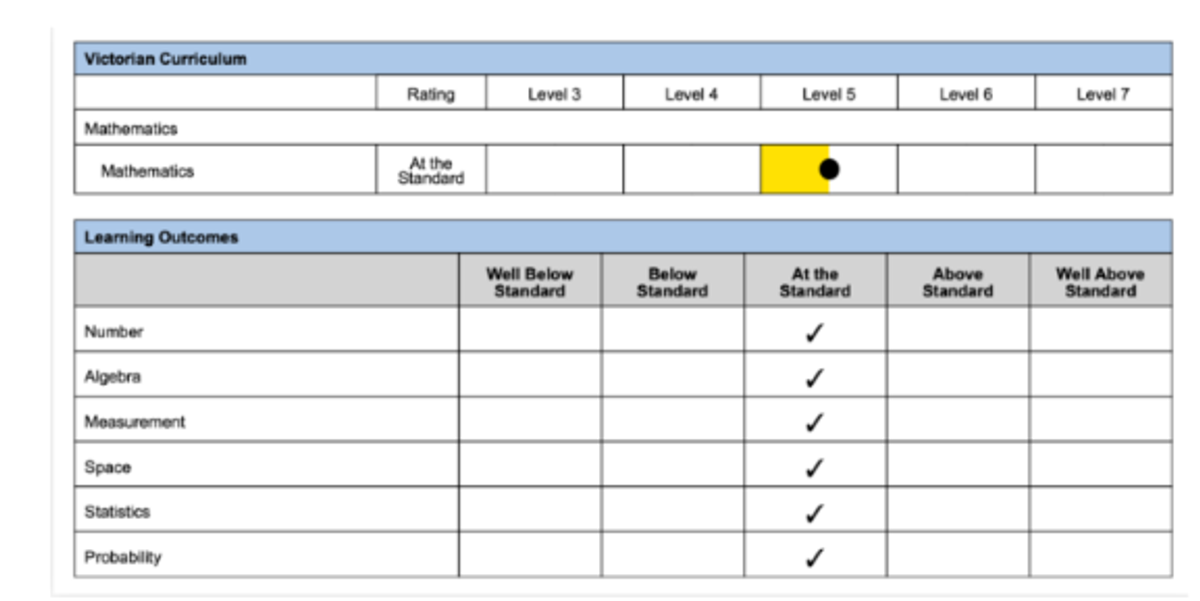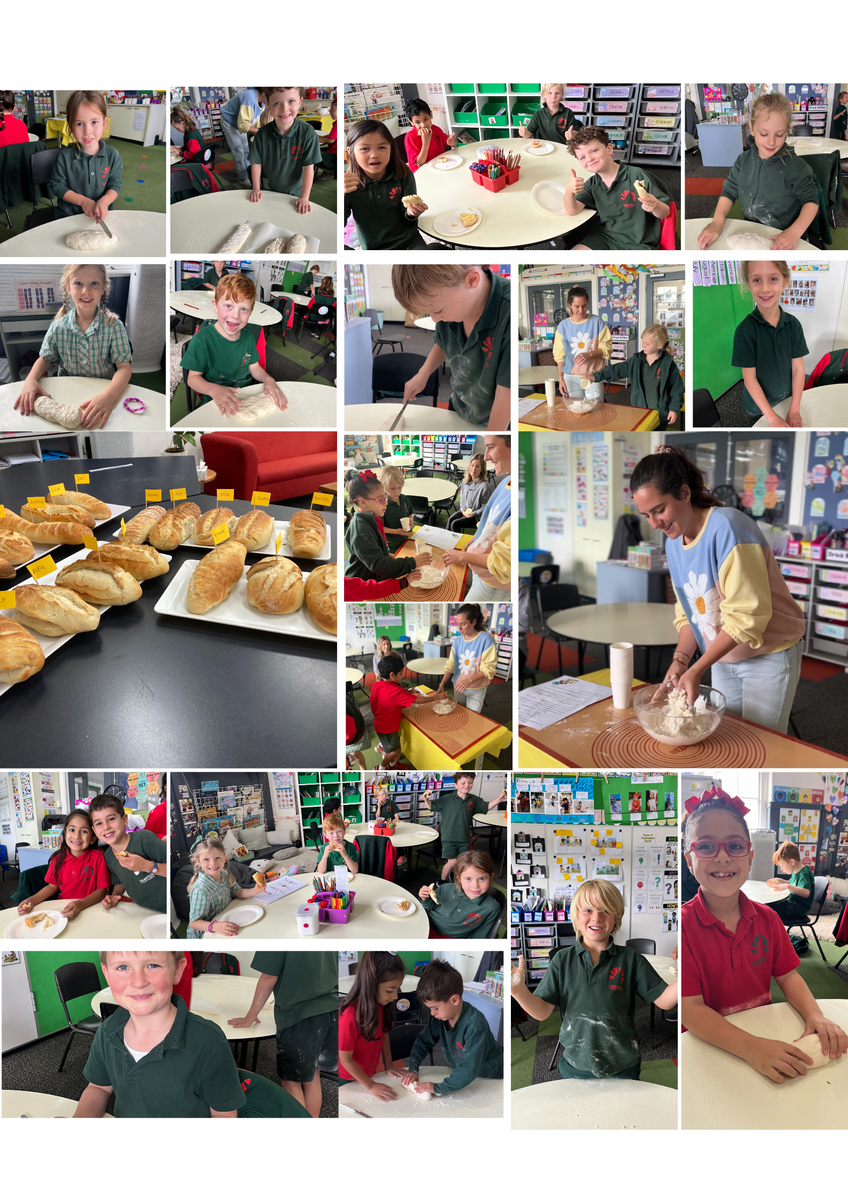Curriculum
Cameron Azer | Assistant Principal Image: 5B Classroom - Numeracy Lesson

Curriculum
Cameron Azer | Assistant Principal Image: 5B Classroom - Numeracy Lesson
Due to the change to a single achievement standard without strands at each level, schools will be required to report (when they have implemented Mathematics Version 2.0) across levels Foundation to 10 with one overarching teacher judgement each semester, providing a single, aggregated score for mathematics to parents and carers and the department.
The report against Mathematics Version 2.0 must include:
Please see an example of what the Numeracy Semester 1 Reports below:


The age-related scale informs the following learning outcomes for each student:
Well Below Standard = 12+ months or more below the expected standard
Below Standard = 6 months below the expected standard
At Standard = At the required level
Above Standard = 6 months ahead of the expected standard
Well Above Standard = 12+ months or more above the expected standard
Lastly, what will still be included is a short paragraph explaining what students 'typically' understand within each of the 6 new strands on numeracy.
For example:
Typically students statement for 'Algebra Strand'
Typically, students at this level find unknown values in equations involving addition and subtraction. They follow and create processes that generate sets of numbers and identify the emerging patterns.
If you have any questions or would like to know more about the change to the new mathematics curriculum, please contact the school.
As part of our inquiry units “How can I be the best I can be?”, students in 1D explored the importance of nourishing both body and mind through a special hands-on activity of making their very own baguettes!


Each student had the opportunity to get involved in the bread-making process. They measured ingredients, mixed and kneaded the dough with their hands, and shaped their own mini baguettes. The students loved the experience, there were big smiles, proud moments, and lots of excitement as the delicious smell of freshly baked bread filled the room!
This experience helped students make meaningful connections to our inquiry focus learning how preparing healthy and nourishing food supports physical wellbeing, and how engaging in creative, mindful activities can positively impact emotional wellbeing. Sitting down together to enjoy the warm, freshly baked bread also helped build a sense of community.
A heartfelt thank you to Camille for generously volunteering her time and expertise to guide us through this memorable experience. Your support helped bring our learning to life in the most delicious way!